Lawmaker Says Iranians Bought $7 Billion Of Property In Turkey
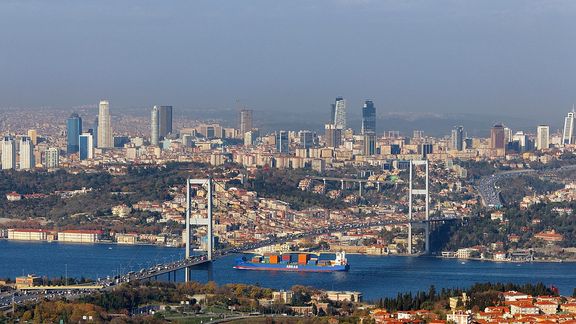
A senior member of Iran’s parliament has said Sunday that Iranians bought $7 billion of real estate in Turkey in three years, saving it from bankruptcy.

A senior member of Iran’s parliament has said Sunday that Iranians bought $7 billion of real estate in Turkey in three years, saving it from bankruptcy.
Mojtaba Yousefi member of the parliament’s presidium said that between 2018-2020 Iranians took $7 billion out of the country to buy property, while Turkey has become aggressive toward Iran. In recent days, there has been tensions between Iran and the Republic of Azerbaijan, supported by Turkey.
As US sanctions were imposed in 2018, many well-to-do Iranians tried to protect their capital by taking money out of the country and investing abroad. There is no clear overall figure but numbers between $40-60 billion have been mentioned.
By buying property in Turkey, Iranians hope to gain Turkish citizenship and be able to do business without being restricted by US sanctions that makes it hard for Iranians to even open bank accounts in other countries.
In the past three years, Turkish official figures show Iranians buying more than 3,000 residential unites every year, but purchases of other properties by registered companies is not available.

The health of political prisoner Soheila Hejab who has been on hunger strike at the notorious Qarchak Prison for women since September 19 has worsened.
A pro-monarchy and anti-hijab activist, Sohelia Hejab passed out twice as she staged a sit-in in a corridor at Qarchak women’s prison, former hunger striker Arash Sadeghi tweeted Saturday evening.
Sadeghi wrote that Hejab, a 30-year-old law graduate who has been on hunger strike since September 19, was wearing a shroud to symbolize her readiness to die.
A member of the royalist group, Constitutional Party of Iran banned by the Islamic Republic, Hejab is protesting against the treatment of political prisoners. Hejab was sentenced to 18 years in July 2020 for "propaganda against the regime", "forming a women's rights group" and "calling for a referendum to change the Constitution", by notorious judge Mohammad Moghiseh. In May 2020 she was arrested again by Revolutionary Guards' Intelligence Organization and was taken to Qarchak Prison for women in the south of the capital to serve her sentence.
On Friday the United States-based Human Rights Activists News Agency (HRANA) reported that Hejab's blood pressure had dropped, and that her stomach “would not even hold water.”
"Her family are seriously worried due to [her hunger strike] and her kidney problems," HRANA wrote. HRANA said prison authorities had on the orders of a judge refused to allow her to receive treatment in a hospital outside the prison.
In a voice message from prison in May 2020 Hejab accused Revolutionary Guard (IRGC) intelligence officers who arrested her of brutality. She said that she had been held by her hair, dragged along the ground, and kicked.
She also said her interrogators from IRGC intelligence at Qarchak threatened to have her killed by dangerous criminals in the jail. She has written a number of letters from prison in which she has defended her political beliefs and criticized the Iranian authorities including Supreme Leader Ali Khamenei.
Hejab was first arrested in Shiraz in January 2018 on charges of assembly, collusion and propaganda against the regime. After five months at Adel-Abad Prison of Shiraz, Hejab who hails from a Kurdish family from Kermanshah was pardoned and freed.She was violently arrested again in June 2019 by IRGC intelligence, taken to Evin prison, and later released on a large bail.
Qarchak prison, also called Shahr-e Rey prison, is a prison for women located in Varamin 30 km south east of Tehran. Other prisoners such as Sepideh Gholian (Qolian), who recently gave a detailed account of mistreatment of women in Bushehr jail in southern Iran, rights activist Nasrin Sotoudeh, and Australian-British academic Kylie-Moore-Gilbert have described conditions at Qarchak as worse than Evin prison where political prisoners are often held.
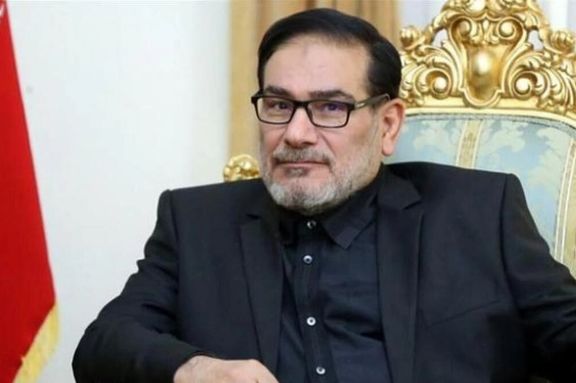
As tensions continued between Tehran and the Baku, the secretary of Iran’s security council tweeted that his country has never been a threat to its neighbors.
Ali Shamkhani wrote on Saturday, “Iran in its power and greatness has always been the well-wisher of its neighbors and has never posed a threat to them.”
In recent days tensions have spiked between the two largely Shiite countries as Azerbaijan held military drills with Turkey and Pakistan and detained Iranian truck drivers crossing into Armenian territories near Nagorno Karabakh.
Iran’s military launched its own drills on Friday, massing large numbers of troops and military hardware at its northwestern border. Iranian politicians have been making anti-Baku statements and warning President Ilham Aliyev “not to play with the lion’s tail”.
Shamkhani further said, “Problems will be solved with cooperation and sympathy among regional countries. Any influence by outsiders will bear no fruit except mischief and discord. We call on neighbors to be prudent and keep their distance from them.”
Iran has been accusing Azerbaijan of allowing Israel to establish a presence on its territory.
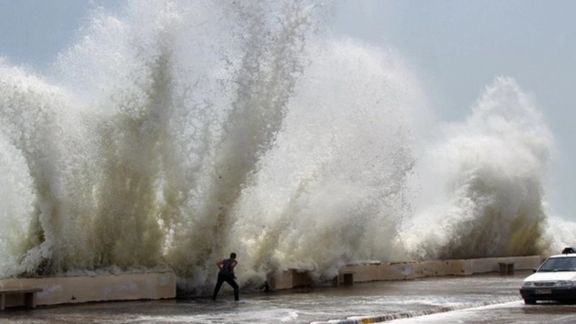
The tropical storm Shaheen in northern Indian Ocean has moved closer to the Sea of Oman, impacting Iran’s southeast region and the coast of Oman on Saturday.
Iranian emergency services ordered many villages to be evacuated in the Sistan-Baluchistan province where two fishing boats anchored near the coast sank as high winds and turbulent seas battered the region.
Oman’s Meteorology service announced that the tropical storm is developing into a tropical cyclone as it nears the region.
Iran’s Chabahar port, a major transit point for good, as well offices and schools were closed on Saturday, the first weekday in the country. Dust storms raised by the storm have blanketed Sistan-Baluchistan and dozens of people visited hospitals to seek medical care.
Iranian meteorologists have forecast winds of more than 110 kilometers and rains dumping 300 millimeters (12 inch) of water in the region.
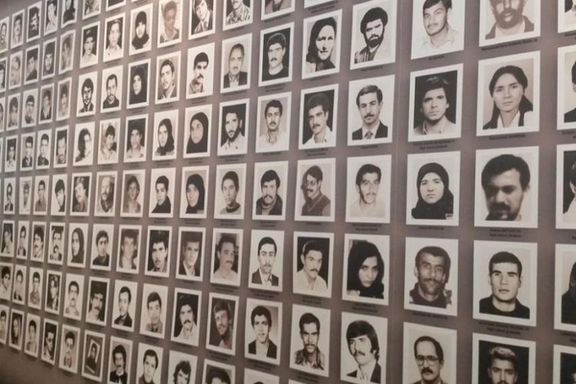
Evidence being given in the Stockholm trial of Hamid Nouri (Noury) implicates him as a judge and torturer in the 1988 wave of prison executions in Iran.
Twelve plaintiffs have since August 10 given testimony against Nouri (Noury), who has been charged under universal jurisdiction with “war crimes, crimes against humanity, torture, and participating in the continued crime of refusing to return the bodies of executed prisoners to their families.”
Plaintiffs and witnesses have said Nouri, known to prisoners as Hamid Abbasi, was directly involved in 1988 in torturing, executing and secretly burying thousands of prisoners, mostly members of the Mujahedin-e Khalq Organization (MEK), at Gohardasht prison in Karaj where they say Nouri, then 27, was a judge.
Nouri, who was arrested in 2019 at Stockholm airport when apparently arriving to visit relatives, denies any connection with the executions.
Nouri, now 60, interrogated the prisoners and mocked them, Fereydoun Najafi-Aria told the court Friday. Najafi-Aria, who lives in Australia, explained to the court that he was arrested in 1981, aged 18, and sentenced to 15 years in prison.
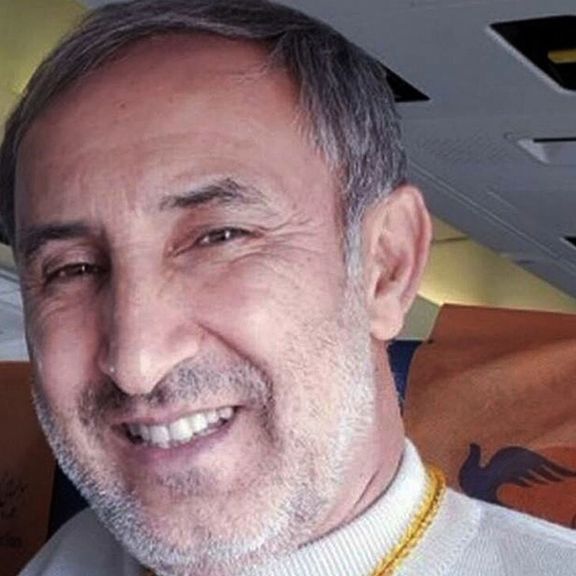
Nouri interviewed MEK prisoners in prayer halls at Gohardasht and Evin prisons, Najafi-Aria alleged: "We would sit three meters away from him, without blindfolds, and watch. He would ask prisoners if they still supported [the MEK]. He would mockingly tell them they would be arrested and killed if they were released and continued political activity.”
Najafi-Aria told the court he found out about mass executions of prisoners on August 9, 1988 when a prisoners informed others by tapping on the wall in Morse code: "Khomeini has sent a commission. They want to kill everyone."
An ad hoc judicial committee formed after a fatwa from then Iranian leader Ruhollah Khomeinicame to be known among prisoners as the ‘Death Commission.’ Khomeini used the word ‘hypocrites,’ a term widely used by Iranian officials and media to refer to the MEK, which carried out a wave of bombings in Iran and allied with Saddam Hussein during the 1980-88 war.
Amnesty International has analyzed evidence linking several Iranian officials to the massacre, including President Ebrahim Raisi (Raeesi), who was then deputy prosecutor in Tehran. When asked in June about the 1988 executions, Raisi told reporters he had always defended national security and cited acts of violence carried out by the MEK, which was delisted by the United States as a ‘foreign terrorist organization’ in 2012 and moved to a new base in Albania from Iraq by the US in 2016.
The MEK’s National Council of Resistance of Iran, which always highlights the executions, in 2019 named over 5,000 members as victims in a booklet ‘Crimes Against Humanity.’
Another plaintiff, Ahmad Ebrahimi, told the court Tuesday that he saw Nouri in 1988 at Gohardasht prison. Ebrahimi, who had been arrested in 1981 during a meeting with another MEK member, said he was ordered to denounce the MEK in writing.
"I was sat in the narrow corridor in front of the Commission's room to write. I wrote that I denounced 'the hypocrites'. Hamid Abbasi came and stood over my shoulder…I had pushed my blindfold up a little to write so I couldn't see Hamid Abbasi [over my shoulder] but I knew his voice well and recognized it.”
Ebrahimi told the court Nouri then addressed him. "You dirty hypocrite! By hypocrite you mean us! You must make it clear who you actually mean.”
Ebrahimi told the court that he had found out from other prisoners in the same corridor known as the ‘Death Corridor’ that those who did not repent were being executed, so the next time he wrote a denunciation letter in vague terms to save his life.
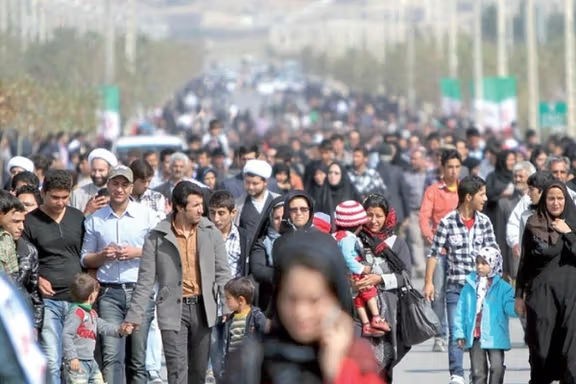
In the Economic Freedom of the World report by Canada’s Fraser Institute Iran has ranked among the ten worst countries, scoring 160 among 165 in the world.
The group of experts who compiled and supervised the report say that measures such as size of government, legal system and property rights, sound money, freedom to trade internationally and regulations were considered in deciding the rankings. The data used was from 2019, but the report was published last month. The report is issued every five years, with the previous one published in 2015.
“The index published in Economic Freedom of the World measures the degree to which the policies and institutions of countries are supportive of economic freedom. The cornerstones of economic freedom are personal choice, voluntary exchange, freedom to enter markets and compete, and security of the person and privately owned property,” Fraser Institute said.
Iran ranked at the very bottom of the scale in freedom to own foreign currency bank accounts, and most notably in freedom of foreigners to invest and even travel to Iran. This has been detrimental to Iran’s economy especially in its oil and gas sectors, where infusion of new capital and technologies are sorely needed. Iranian officials have said that more than $50 billion is needed immediately to upgrade decaying infrastructure.
While the Iranian government has been blaming international sanctions in early 2010s and US sanctions since 2018 for its economic problems, the report sheds light on the need to reform legal, banking and other regulations by the government to boost investments and productivity.
Data in the report show that Iran has a closed economic system with a big government sector and huge subsidies that limit the government’s ability to invest. What is not well reflected in the data is the size of state ownership, since Iran presents most of its large industries and companies as privately held, while they are in fact hybrid entities controlled by the government and owned by powerful insiders and state banks or “charities”.
The data in the report also show a high degree of “military interference in rule of law and politics,” over the years. In fact, the Islamic Revolutionary Guard Corps (IRGC) is one the largest business conglomerates in the country, stifling competition and any chance of foreign investments.
In the section about ‘Freedom to trade internationally’, Iran received low scores in tariff rates and the gap between official and black market currency exchange rates.
The regulatory landscape also received low marks, with credit market regulation, including interest rate controls, and labor laws hitting low scores.
An overall observation shows little change in economic freedom since the last report was issued in 2015. The bottom ten countries in the study were: Central African Republic, Democratic Republic of Congo, Syria, Republic of Congo, Iran, Zimbabwe, Algeria, Libya, Sudan, and Venezuela.